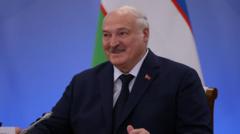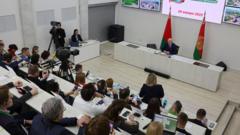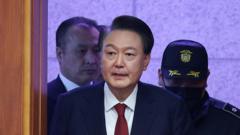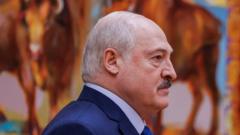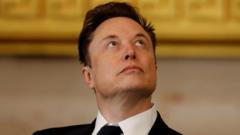After the annulment of a presidential election round won by a pro-Moscow candidate, Romania faces scrutiny over its democratic processes. Critics, including Russia's foreign minister and notable figures like Elon Musk, question the legitimacy of nullifying voter decisions.
Romania's Canceled Presidential Vote: A Democratic Dilemma or a Russian Propaganda Win?

Romania's Canceled Presidential Vote: A Democratic Dilemma or a Russian Propaganda Win?
The annulment of the first round of Romania's presidential election raises questions about democracy while offering Russia a propaganda opportunity.
In a significant turn of events this month, Romania’s constitutional court annulled the first round of its presidential election, which had been won by Calin Georgescu, a candidate known for his ultranationalist views and pro-Russian sentiments. The decision, widely celebrated by Western officials as a victory for democratic integrity, has raised eyebrows about the implications for Romania's electoral system and handed a verbal weapon to Russian propaganda.
The court's ruling has yet to set a new date for the election, generating uncertainty and prompting critiques of Romania's democratic process. Russian foreign minister Sergei Lavrov wasted no time in seizing the opportunity, framing the decision as a politically motivated manipulation of democracy. He expressed disbelief at the situation, remarking, "I am sure that all these games are perfectly understandable to any more or less objective observer." Lavrov’s sentiments were echoed by Russia's embassy in Bucharest, which highlighted his comments as part of a broader message questioning the West's commitment to fair democratic practices.
The annulment came just two days before a scheduled runoff vote, a scenario that positioned Georgescu as a frontrunner following his surprising success in the initial round on October 24. The sudden intervention has led to debates on the legitimacy of nullifying an electoral process midway, with critics arguing that it undermines voter rights.
Notable figures have added fuel to this discourse. Elon Musk, known for his polarizing online presence, weighed in on social media, mischaracterizing the unanimous decision of the Romanian tribunal as an authoritarian act. “How can a judge cancel an election and not be considered a dictator?” Musk tweeted, implying that the intervention stood against core democratic principles.
As Romania grapples with this controversial ruling, the lingering question remains: how does one establish the credibility of a democratic system when the very act of voting can be so abruptly invalidated? The unfolding situation serves as a reminder of the delicate balance between electoral integrity and the external influences that shape democratic narratives.









